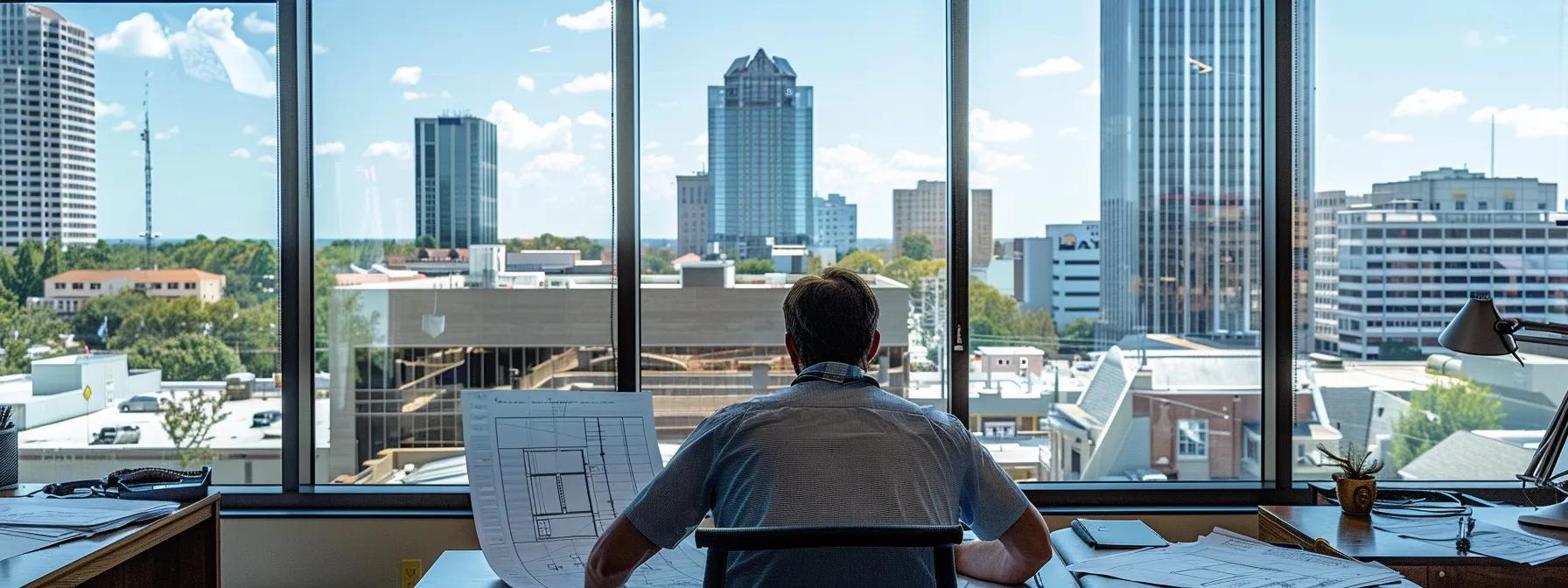Meet Savannah’s HVAC Compliance Requirements for Homeowners

Homeowners in Savannah must navigate a myriad of HVAC regulations to ensure the safety, efficiency, and reliability of their heating and cooling systems, including proactive maintenance plans that support long-term upkeep. Compliance with both state and local codes is critical for long-term performance, energy conservation, and indoor air quality. This guide highlights the essential regulations, permit procedures (which can involve a simple request-estimate for certain aspects), mandatory inspections, and penalties for non-compliance.
Understanding Key HVAC Regulations for Homeowners in Savannah
Savannah homeowners face unique challenges when upgrading or installing HVAC systems. Regulations set by the state and local authorities ensure safety, promote energy efficiency, and protect indoor air quality. Below is an overview of essential regulatory elements affecting HVAC installation and maintenance in Savannah.
Current Georgia State Minimum Standard Codes Impacting Savannah Residences
Georgia’s minimum standard codes establish the baseline for HVAC performance and safety. HVAC units must meet specific efficiency ratings (SEER2, HSPF2, and AFUE) to operate safely and efficiently. In addition, state guidelines mandate proper duct sealing, insulation, and refrigerant management practices to: • Prevent safety hazards • Reduce energy consumption • Lower long-term operating costs
Compliance with these codes supports environmental sustainability while ensuring that residential HVAC systems perform reliably over time.
Specific City of Savannah Ordinances Affecting HVAC Systems
Local ordinances in Savannah often require stricter standards than state codes. For example, city regulations may specify: • The type of refrigerants permitted • Noise restrictions for outdoor units • Proper placement of HVAC systems to minimize disturbances
Additionally, some projects require submission of HVAC installation plans for review. Adhering to these rules helps maintain neighborhood quality of life and protects residential property values.
Navigating HVAC Compliance for Historic District Properties in Savannah
In Savannah’s historic districts, additional regulations apply to preserve architectural heritage. Homeowners must often obtain special permits and use installation methods that blend modern efficiency with historic aesthetics. Requirements may include: • Use of concealed ductwork • Specific placement of external units to avoid visual impact
Consulting experienced professionals familiar with historic preservation can help homeowners balance compliance with energy conservation goals.
How Local Climate Factors Influence Savannah HVAC Regulations
Savannah’s humid subtropical climate, characterized by hot, humid summers and mild winters, strongly influences HVAC design and regulations. Local codes emphasize: • Robust dehumidification and high-efficiency air filters • Proper system sizing to avoid short cycling • Regular maintenance to cope with high ambient temperatures
These measures ensure that HVAC systems operate efficiently during peak conditions while maintaining comfortable indoor temperatures and reducing energy waste.
Recent Changes to HVAC Rules Homeowners Must Know
Recent revisions in Savannah’s HVAC regulations reflect advances in energy efficiency technology and growing environmental concerns. Key changes include: • Higher minimum SEER2 ratings for new installations • Enhanced refrigerant management protocols • Increased frequency and scope of post-installation inspections
Homeowners should discuss these updates with their HVAC contractors to ensure that any new work complies with the latest standards, thereby avoiding fines and preserving system reliability.
Essential Permitting Processes for HVAC Work in Savannah

Obtaining the proper permits is a critical first step for any significant HVAC project in Savannah. The permitting process ensures that installations and repairs meet all local and state safety standards.
When Savannah Homeowners Need an HVAC Permit
In Savannah, an HVAC permit is generally required for: • New system installations • Major repairs or significant modifications • Projects that involve duct alterations or electrical upgrades
Routine maintenance and minor servicing typically do not require permits. Consulting with a licensed HVAC contractor can help determine whether a project needs a permit, thus avoiding penalties or additional correction costs later.
Steps to Apply for an HVAC Permit in Savannah
The permit application process is straightforward: 1. Homeowners complete an application form detailing the planned work. 2. Detailed schematics or drawings must be submitted along with the application. 3. Local building officials review the submission for compliance with all applicable codes. 4. Once approved, the permit is issued and periodic inspections are scheduled during installation. 5. After inspections and completion of work, a certificate of occupancy is issued.
Following these steps not only verifies legal compliance but also enhances long-term system performance and reliability.
Understanding Homeowner’s Permit Limitations and Responsibilities
HVAC permits come with limitations and responsibilities. They specify: • The exact work authorized and the timeframe for completion • The requirement that any modifications follow the approved plans • That a licensed professional must conduct the work
Failure to adhere to permit conditions can result in fines, increased insurance premiums, or voided manufacturer warranties. Homeowners should fully understand their permit’s scope and work closely with qualified professionals.
Working With Licensed HVAC Contractors for Permitted Installations
Engaging licensed HVAC contractors is crucial. These professionals: • Have in-depth knowledge of local codes and regulations • Can navigate the permitting process effectively • Ensure that installations directly contribute to improved indoor air quality and energy efficiency
Working with certified experts minimizes risks and enhances overall system performance while ensuring full regulatory compliance.
Consequences of Performing HVAC Work Without a Permit in Savannah
Skipping the permit process can have severe consequences: • Hefty fines and legal action • Compromised system safety and energy efficiency • Voided manufacturer warranties and increased insurance premiums • Costly corrections if non-compliant work is discovered during later inspections or property sales
It is essential to secure the appropriate permit to avoid these long-term risks.
Critical HVAC Inspection Requirements for Savannah Homes
Regular HVAC inspections are vital to ensure systems remain safe, efficient, and compliant with local codes.
Scheduling Mandatory HVAC Inspections in Savannah
Savannah requires homeowners to schedule periodic inspections: • At the time of installation and following major repairs • At regular intervals as part of routine maintenance
These inspections, typically arranged by or coordinated with the local building department, help detect issues such as air leaks or refrigerant mismanagement early.
What Inspectors Look for During a Residential HVAC Check
During an inspection, professionals check: • Airflow and proper duct sealing • Electrical wiring standards and refrigerant levels • Energy efficiency ratings against mandated SEER2, HSPF2, and AFUE standards
Identifying potential deficiencies ensures the system operates safely while maintaining indoor air quality and efficiency.
Preparing Your Home for a Successful HVAC Inspection
Homeowners can improve inspection outcomes by: • Conducting routine maintenance such as filter replacements and duct sealing • Providing documentation of recent repairs and previous inspections • Ensuring that any modifications have been permitted and documented
A well-prepared system not only passes inspection smoothly but also promotes long-term operational reliability.
Addressing Common HVAC Code Violations Found in Savannah Residences
Common violations include: • Improper venting and substandard electrical wiring • Insufficient refrigerant handling procedures
Working with licensed professionals for regular system upgrades and maintenance can correct these issues early, enhancing both safety and energy efficiency.
Obtaining a Certificate of Occupancy After HVAC Work
After significant HVAC installations, a Certificate of Occupancy (CO) is required. This certificate confirms that: • The work meets all state and local codes • The system is safe and ready for use
A valid CO is important for property transactions and insurance requirements, reflecting adherence to regulatory standards while enhancing property value.
Maintaining HVAC Compliance and Safety in Your Savannah Home

Ongoing HVAC maintenance is crucial for sustained efficiency, safety, and compliance. Regular upkeep not only prolongs system life but also optimizes indoor air quality.
Regular HVAC Maintenance for Ongoing Code Adherence
A routine maintenance plan should include: • Cleaning and regular filter changes • Duct inspections and system tune-ups • Periodic professional check-ups adhering to local codes
Scheduled maintenance prevents unexpected breakdowns and preserves energy efficiency, ensuring continuous compliance with evolving regulations.
Ensuring Proper Ventilation and Airflow Per Savannah Standards
Proper ventilation is key to energy conservation and indoor air quality. Savannah codes require: • Unobstructed air ducts and exhaust vents • Regular cleaning and maintenance of fresh air intakes
Maintaining these systems not only improves comfort but also enhances overall system longevity, directly impacting energy efficiency.
Safety Checks for Gas Furnaces and Carbon Monoxide Prevention
Because gas furnaces carry inherent risks, regulations mandate: • Regular safety inspections and proper ventilation • Installation and testing of carbon monoxide detectors
Ensuring that these safety protocols are followed prevents potentially deadly hazards while maintaining system efficiency.
Adhering to Refrigerant Handling and Disposal Rules
Strict rules govern refrigerant management to prevent environmental harm. Compliance requires: • Use of certified equipment for refrigerant recovery and disposal • Adherence to proper storage and handling protocols
Licensed technicians must perform any refrigerant-related work to avoid fines and environmental penalties.
Importance of Licensed Professionals for HVAC Repairs and Service
Using licensed professionals ensures that: • Repairs and installations conform to current codes • Manufacturer warranties remain intact • Overall system performance and indoor air quality are maintained
Certified experts bring critical expertise that minimizes risk and guarantees long-term reliability.
Energy Efficiency Standards and HVAC Compliance in Savannah
Energy efficiency is a core focus in Savannah’s HVAC regulations. Efficient systems reduce operating costs and environmental impact while ensuring regulatory compliance.
Meeting SEER2, HSPF2, and AFUE Ratings for HVAC in Savannah
Savannah mandates that HVAC systems meet or exceed specific energy efficiency ratings: • SEER2 for cooling efficiency • HSPF2 for heating performance • AFUE for furnace efficiency
Choosing systems that surpass these minimum requirements leads to reduced energy bills, lower carbon footprints, and better overall performance.
How the International Energy Conservation Code Applies in Savannah
The International Energy Conservation Code (IECC) influences local HVAC regulations by: • Setting strict efficiency standards and insulation requirements • Mandating improvements in duct sealing and system controls
Compliance with the IECC helps homeowners reduce energy consumption while creating healthier indoor environments.
Available Rebates or Incentives for Energy-Efficient HVAC Upgrades
Homeowners can take advantage of various rebates and tax incentives designed to lower upgrade costs for high-efficiency systems. These programs: • Help offset installation and upgrade expenses • Promote broader adoption of energy-saving technologies • Reflect Savannah’s commitment to clean energy and energy conservation
Reviewing eligibility for these programs can yield significant long-term savings.
Impact of Proper HVAC Sizing on Compliance and Energy Savings
Correct system sizing is crucial as oversized or undersized units lead to inefficiencies and increased wear. Factors such as building insulation and window placement are considered during load calculations. A properly sized system: • Ensures efficient cycling and consistent indoor comfort • Reduces utility costs and minimizes maintenance issues
Professional consultations can help determine the optimal system size for each property.
Savannah’s Clean Energy Goals and Homeowner HVAC Systems
Local initiatives encourage homeowners to adopt systems that support clean energy goals. By investing in higher-efficiency HVAC systems, homeowners can: • Contribute to renewable energy targets • Benefit from lower energy costs and increased property values • Help drive community-wide environmental sustainability
Adherence to these clean energy policies promotes both individual savings and broader economic benefits.
Penalties and Legal Aspects of HVAC Non-Compliance in Savannah

Non-compliance with HVAC regulations can lead to severe legal and financial consequences. Homeowners must be aware of the potential penalties to proactively address any code violations.
Potential Fines for Violating Savannah HVAC Regulations
Violators may face fines ranging from hundreds to thousands of dollars, with repeat or major safety violations incurring even stiffer penalties. These fines are designed to: • Deter improper installations • Encourage the use of licensed professionals • Maintain high safety and energy efficiency standards
Legal Responsibilities of Homeowners for HVAC Systems
Homeowners are legally responsible for ensuring that HVAC systems comply with all applicable local, state, and federal regulations. This includes: • Obtaining and adhering to permits • Hiring licensed professionals • Scheduling regular inspections
Failure to meet these responsibilities can affect insurance policies and property resale values.
How Non-Compliance Can Affect Home Resale or Insurance
Non-compliant HVAC systems can lower property marketability and drive up insurance premiums. Buyers and insurers view unpermitted or outdated systems as liabilities. Maintaining a documented history of compliance: • Enhances buyer confidence • Supports higher market valuations • Reduces insurance costs
Resolving Disputes Related to HVAC Installations or Repairs
Disputes may arise from issues such as permit misunderstandings or installation deficiencies. Such conflicts can be resolved through: • Mediation or local building department reviews • Thorough documentation of all work, permits, and inspections • Engagement with licensed contractors
A prompt resolution minimizes additional costs and preserves property integrity.
Understanding Manufacturer Warranties and Code Compliance
Manufacturer warranties require proper installation in compliance with local codes. Non-compliant work can void warranties, leaving homeowners to cover repair costs. It is essential to: • Strictly adhere to both the warranty and code requirements • Use licensed professionals for all installations and repairs • Regularly review warranty conditions and compliance guidelines
Frequently Asked Questions
Q: What are the benefits of regular HVAC inspections in Savannah? A: Regular inspections help identify inefficiencies, prevent safety hazards, and ensure that systems meet local codes, reducing energy costs and boosting indoor air quality.
Q: How do I know if my HVAC system meets Georgia state minimum standards? A: Licensed HVAC professionals perform evaluations using efficiency ratings such as SEER2, HSPF2, and AFUE, along with reviewing installation documentation and inspection records.
Q: What should I do if I’m planning to update my HVAC system in a historic district? A: Work with experienced professionals to secure the necessary permits and adhere to specific design guidelines that preserve the historic character of your home while achieving modern efficiency.
Q: Are there financial incentives available for energy-efficient HVAC upgrades in Savannah? A: Yes, local and state programs offer rebates and tax incentives for upgrading to high-efficiency systems that meet or exceed performance standards.
Q: What legal consequences can occur if HVAC work is performed without a permit? A: Homeowners may face fines, legal action, increased insurance premiums, and complications during property resale, and non-compliant systems can void manufacturer warranties.
Q: Why is proper HVAC sizing important in Savannah? A: Correct sizing prevents energy waste, minimizes maintenance issues, and ensures consistent indoor comfort, while oversized or undersized systems reduce efficiency and may damage system longevity.
Q: How often should I schedule HVAC maintenance to remain compliant? A: It is recommended to have professional maintenance at least once or twice a year, with additional checks after significant repairs or modifications, to maintain efficiency and adherence to local codes.
Final Thoughts
Savannah homeowners must prioritize HVAC compliance to safeguard their properties, enhance energy efficiency, and ensure system longevity. By adhering to state and local regulations, securing the necessary permits, and scheduling regular inspections, homeowners can maintain safe and efficient HVAC systems. Working with licensed professionals provides peace of mind, long-term savings, and optimal indoor air quality.
Below is a summary table of key HVAC performance metrics:
By understanding and adhering to HVAC regulations, Savannah homeowners can confidently manage their systems, improve indoor air quality, and maximize efficiency. This comprehensive approach not only enhances property value but also contributes to a healthier, more sustainable community.